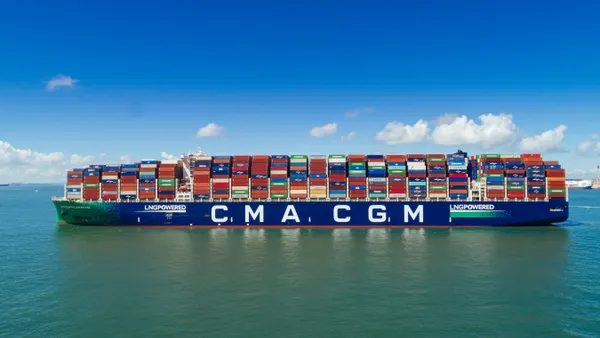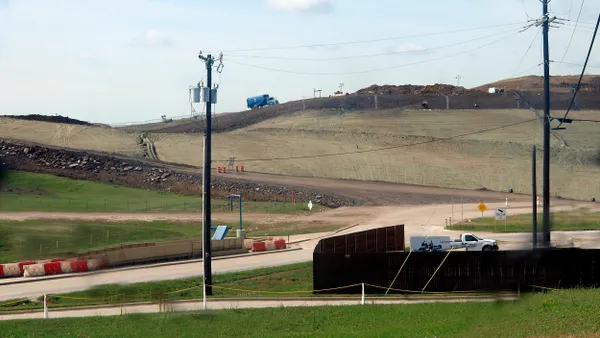Dive Brief:
- Clinton Landfill Inc., owned by Peoria Disposal, has been prohibited from accepting certain chemical wastes such as polychlorinated biphenyls (PCBs) following a settlement last week. It also cannot accept manufactured gas wastes, and there will be an Illinois state requirement to conduct regular groundwater sampling tests to ensure that no harmful contaminants are released from the landfill.
- This legal action follows Peoria Disposal’s attempts to accept certain toxic wastes without required approval, said Illinois Attorney General Lisa Madigan in a statement.
- Clinton Landfill had been pursuing a permit since 2007 from state and federal agencies to store PCBs, which are inside electric devices, plastics, some paints and insulation materials. Nearby counties residents have opposed this due to the landfill's location — over Mahomet Aquifer, the source of drinking water for the region.
Dive Insight:
Environmentalists and Illinois politicians have long fought against Illinois EPA’s January 2010 decision to allow Clinton Landfill to dump some PCBs at the site. Chris Coulter, vice president of the company that owns the landfill, asserted around the time of the rule, "We would not be applying for this permit if we didn't think it was a very safe and secure site."
But George Wissmiller, president of WATCH (We’re Against Toxic Chemicals) contested. "This is an environmental disaster waiting to happen," he said to the Pantagraph, voicing concern about leakage into the region’s main source of fresh drinking water.
This past spring, Illinois lawmakers and Gov. Bruce Rauner worked to push a law through to ban dumping of manufactured gas wastes at municipal landfills near the underground water source serving 800,000 Illinois residents.
While the newest legal decision puts more restrictions on the landfill, it also puts citizens first and reinforces continued efforts to protect their ground water.
"Clinton Landfill attempted to evade state law by not seeking local approval to accept certain chemical waste," Madigan recently said in a prepared statement. "This action will prohibit the landfill from receiving hazardous waste, and it protects the public's right to be heard before chemicals are accepted by landfills in their neighborhoods."









